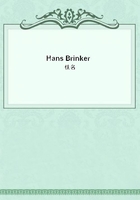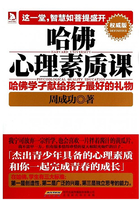Of Jevons's system one part, the "theory of utility," as he calls it, has passed into English literature. Among the works of Continental economists who adopted the new theory, may be mentioned the fine statements of Pierson,(6*) and Charles Gide;(7*) and in Germany a work of Launhardt(8*) on the lines of Jevons and Walras. But it is in Austria, in the lineal succession to Menger, that the development of the new value theory is to be sought. I may be allowed to refer to my own Ursrpung und Hauptgesetze des wirthschaftlichen Werthes, Vienna, 1884, in which I applied Menger's theory to the phenomena of costs. On this followed a work by Bohm-Bawerk,(9*) which, independently of its extremely clear presentation and its careful and fruitful revision of many matters of detail, is particularly valuable from its treatment of the theory of objective value. Finally came a comprehensive work of E. Sax,(10*) extending the theory of value over entirely new material to which no previous writer had applied it -- to public imposts, and thus giving the theory one of its richest applications.
The ground-plan of the new theory is drawn, but much remains to be done; not only to widen its reach generally, but to complete it in itself. The following pages are an attempt to supplement what has already been done. In distinction from my earlier work I have not paused to discuss the assumptions of the value theory, but limited myself severely to the subject of value and its direct content. On the other hand I have attempted to exhaust the entire sphere of the phenomena of value without any exception, and, besides that, so far as my ability goes, to think out more exactly the subjects I had already treated of. The present work is on that account in no way a repetition of my former one, but an entirely new book, treating for the most part of entirely new matter, and having nothing more in common with it than the general fundamental propositions. I hope this time to have met the objection urged against the Ursprung des Werthes that I had omitted the connections -- the "bridges," as one critic called them -- between the principles laid down and the concrete phenomena of value with which we are familiar. Whatever may be thought of its truth or correctness, I think I may venture to say that no value theory has ever yet been put forward more complete and exhaustive in external form and treatment.
The very multitude of single matters which I had to touch on has compelled me to pass over almost every critical analysis that differed from mine, and indeed to leave out almost every appeal to economic authorities outside of those authors who belong to the same school, and from whom I directly took the propositions Ihad put forward. Similarly I have refrained from discussing any of the economic conceptions I had to employ outside of that of value. I shall very willingly put up with the reproach of being incomplete by reason of this if it should succeed in making any clearer the inner connection of the book. At the same time Ishould not like to be suspected of having done so from any undervaluing of the theoretical work of other economists -- least of all, of those of Germany.
I have just said how deeply indebted, in my opinion, every theoretical attempt of to-day is to the labours of German theory.
And to it the new value theory stands most nearly related -- it is in truth the fulfilment of what German theory had long demanded.
NOTES:
1. Rau, too, with his "concrete Gebrauchswerth" may be included.
There is a notable treatise of the mathematician Daniel Bernoulli: Specimen theoriae novae de mensura sortis (Commentarii Academiae Scientiarum imperialis Petropolitanae, tomus V. Ad annos 1730 et 1731. Petropoli, 1738). Bernoulli maintains that it is valde probabile, lucrulum quodvis semper emolumentum afferre summae bonorum reciproce proportionale. He is fully acquainted with the subjective character of value, as well as with the most important law of the change of value. His work is referred to by Jevons in an extract from another of his books. By the kindness of Professor Menger I have seen the original. Dupuit's De l'influence des Peages, 1849, mentioned by Jevons, I have not been able to consult.
2. Entwicklung der Gesetze des menschlichen Verkehrs und der daraus fliessenden Regein fur das menschliche Handeln.
Braunschweig, 1854.
3. First in a paper before the British Association, 1862, then fully in the Theory of Political Economy, London, 1871; 2nd edit.
1879.
4. Grundsatze der Voikswirthschaftslehre, Vienna, 1871.
5. Elements d'economie politique pure ou Theorie de la richesse sociale. Lausanne, 1874-77. -- Theorie mathematique de la richesse sociale. Lausanne, 1883. -- Theorie de la Monnaie.
Lausanne, 1886.
6. Leerboek der staathuishoudkunde. Haarlem, 1884.
7. Principes d'economie poiitique. Paris, 1884.
8. Mathematische Begrundung der Volkswirthschaftsiehre. Leipzig, 1885.
9. Grundzuge der Theorie des wirthschaftlichen Gulerwerths.
Conrad's Jahrbucher, N.F. vol. xiii. Jena, 1886.
10. Grundlegung der theoretischen Staatswirthschaft. Vienna, 1887.















